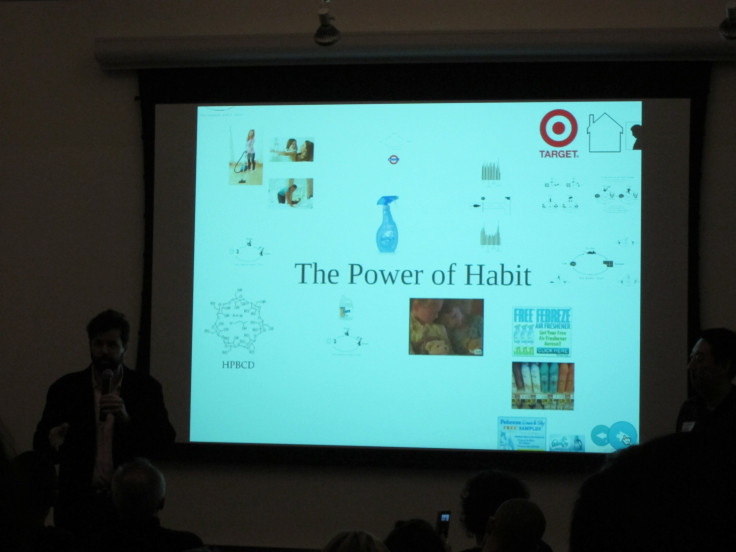Habits Trump Will Power In Stressful Times, For Better Or Worse

The semi-conscious habits of behavior may be more powerful than sheer will during times of stress and crisis, and that's not necessarily a bad thing, researchers say.
In five experiments outlined in the June issue of the Journal of Personality and Social Psychology, investigators had some fun with an old cliché - namely, that people generally fall to pieces during times of crisis as circumstance overwhelms our limited capacity for self-regulation.
Yet, people are just as likely to revert to underlying habits that are positive, the researchers found. During times of crisis or high stress, people might mindlessly prepare the usual healthy breakfast, mindlessly go for a run, or mindlesslessly through their usual exercise routine. Of course, they might also mindlessly eat a pint of ice cream. It all depends on your habits. Whether positive or negative, it's the underlying routine that matters, says Wendy Wood and David Neal, of the University of Southern California.
"When we try to change our behavior, we strategize about our motivation and self-control," Wood said. "But what we should be thinking about instead is how to set up new habits. Habits persist when we're tired and don't have the energy to exert self-control." Woods, a professor of psychology and business, is one of the world's leading experts on habit, the semi-conscious behaviors on which rely throughout the day for such rote tasks as brushing our teeth or remembering the route to work in the morning.
But learned habits don't just help us through the day for a higher level of function. Whether good or bad, behaviors deeply ingrained in the mind determine whether we live or die. Research has shown that habits relating to eating, smoking, and exercise are among the biggest factors in the development of major diseases. Such behaviors account for the primary reasons Americans die younger than people in other rich countries, according to a recent report from the National Academy of Sciences, led by Eileen Crimmins of the University of Southern California's school of gerontology. So while people tend to emphasize the power of will above all else, they ought to focus more on establishing behavioral habits over time.
"Everybody gets stressed. The whole focus on controlling your behavior may not actually be the best way to get people to meet goals," she said. "If you are somebody who doesn't have a lot of willpower, our study showed that habits are even more important."
In one of the experiments, Wood and her colleagues followed college students for a semester, comparing their behaviors during the regular routine of school to the rigors of final exams. They found that students indeed reverted to established routines, whether positive or negative. Those most likely to eat a healthy breakfast did so and, even when pressed for time, gym rats stuck to their exercise routines.
"You might expect that, when students were stressed and had little time, they wouldn't read the paper at all, but instead they fell back on their reading habits," Wood says. "Habits don't require much willpower and thought and deliberation."
To change behavior over time, people should identify healthy and productive habits, Wood says, with one caveat. The habits should be relatively easy to form, which increases the likelihood of repetition for long-term endurance.
Source: Woods, W. Neal, D. Journal of Personality and Social Psychology. 2013.



























